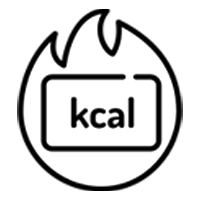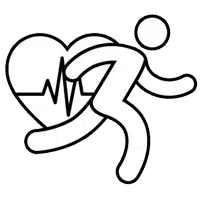Show summary Hide summary
- What are the health benefits of running and jogging?
- More information about running
- Why run? What are the pros and cons of running?
- 1 / Running is good for your overall health and boosts your immune system!
- 2 / Running helps you slim down!
- 3 / Running means losing weight!
- 4 / Running is all about getting your breath back, boosting your cardiovascular capacity and endurance!
- 5 / Running improves your mind, your mood and relieves stress!
- 6 / Running is free!
- 7 / Running gives you a healthy glow and therefore beautiful skin!
- 8 / Running is all about meeting new people!
- 9 / Running is about setting goals!
- 10 / Running means toning your body, strengthening your bones and staying young!
- Running, trail running: what are the drawbacks?
- Information and advice on running training!
What are the health benefits of running and jogging?

Everything you need to know about running
What are the health benefits of running and jogging? Use the tool below to find out all the benefits of running and jogging and discover whether this activity meets your goals and expectations.
More information about running
Is running good for your health? Is it a good sport that’s accessible to everyone? Whether you’re a beginner or an experienced runner, you’ll find a list below of the benefits and problems you might encounter when running.

Why run? What are the pros and cons of running?
We all have a good reason for going running, whether it’s for physical or mental well-being. But the best way to motivate yourself is to know the real benefits of regular jogging. Here are 10 good reasons to go running!
1 / Running is good for your overall health and boosts your immune system!

Generally speaking, there’s no longer any need to prove that sport such as jogging is good for your health. It’s always a good idea to remember that inactivity combined with poor dietary habits are at the root of the main health problems in so-called modern societies, with cardiovascular disease taking pride of place.
What’s more, sport should be reimbursed by the social security system, because no drug today can match the benefit/risk ratio that physical activity provides for the vast majority of health problems (depression, sleep disorders, cardiovascular disease, stress, etc.).
2 / Running helps you slim down!

Running is without doubt one of the sports that burns the most calories (see the list of The 10 best sports for slimming down). Running not only helps you burn fat, it also helps you refine your figure by building muscle harmoniously, but we’ll come back to this a little further down in our “4th reason to run”.
3 / Running means losing weight!

Some people will tell you that “running doesn’t make you lose weight”, and they may be partly right in some cases, which we’ll explain below, but basically and in the long term, we can say that running does make you lose weight.
Obviously, weight loss is not essentially a question of calorie expenditure, but also of intake. With a balanced and varied diet that meets your needs without exceeding them (see: Basic metabolism: Calorie requirement calculation), you will inevitably lose weight if you are overweight and start jogging.
However, it is perfectly logical for some people to put on a little weight as part of the natural transition from muscle gain to fat loss. To find out if you’re losing fat, the best way is to use a tape measure to measure your thigh and abdominal circumference. You’ll then see that you may have put on a few grams but that your body is becoming slimmer and more aesthetically pleasing.
4 / Running is all about getting your breath back, boosting your cardiovascular capacity and endurance!

You’ll gradually see the effects on your breathing in everyday life, when you’re climbing the stairs or simply playing with your children.
The power of good oxygenation in the body is limitless. It plays a vital role in the proper functioning of your body as a whole, but also in areas you may not be aware of. Did you know, for example, that burning fat is facilitated by good oxygenation?
Take the example of a candle placed under a glass: it will gradually go out as soon as it runs out of oxygen. Burning fat is totally comparable to burning candle wax, although it is more complex.
Unlike sugars, fat needs oxygen to burn. This is why fat burning is not the same for a beginner athlete who is completely out of breath as for an experienced athlete, firstly because the latter has more developed aerobic capacity, and therefore better oxygenation during exercise, and secondly because his muscle mass will need to consume more fat to provide energy.
So you can see, by example, the virtuous circle of sport in the medium and long term. That’s why, if you start jogging again, go at your own pace without getting out of breath, and don’t hesitate to alternate between walking and running. Your body will do the rest and you’ll gradually feel your breath improve over time. Never forget that if you’re going to start running, you need to take your time, be gentle on your bike and train regularly (ideally 3 times a week).
5 / Running improves your mind, your mood and relieves stress!

It’s been widely proven and demonstrated that sport is the number one natural antidepressant, along with sunlight. There’s a saying that goes: “a healthy mind in a healthy body”, and if you want to shine in society, you can also say it in Latin: “mens sana in corpore sano”.
Running, and physical activity in general, plays a positive role in the secretion of mood-enhancing hormones. It will not have escaped you, for those who already take part in physical activity on a regular basis, that after the effort, you can feel a certain euphoria.
Another positive aspect of running for the mind is its ability to boost confidence and positivity, as well as providing an opportunity to release tension and frustrations, and generally combat stress and anxiety.
Last but not least, running outside provides you with plenty of visible light (the light that sets the rhythm of our biological rhythms through the alternation of day and night and the sleep/wake cycles), which helps to put your brain into a dynamic ‘on’ state. It’s also a good way of getting your fill of light that’s invisible to the eye (UV Ultra Violet), which, along with your diet, plays an essential role in obtaining the vitamin D that’s essential for your bones and muscles.
6 / Running is free!

Of course, you have to buy the right shoes (don’t neglect this purchase!) and some breathable outfits that you choose according to the season and the weather, but unlike other sports, running is totally free and you can do this sport wherever you are and whenever you like.
7 / Running gives you a healthy glow and therefore beautiful skin!

When you run in the open air, even in winter, you expose yourself to the benefits of the sun’s rays and your skin reaps all the benefits.
Another action that many of you may not be aware of is the role of perspiration! This mechanism is more effective than the best peel, because your pores will be cleansed and the toxins that tire your skin will also be eliminated. In short, your skin will be regenerated and smoother.
8 / Running is all about meeting new people!

Have you ever noticed something fascinating? If you go for a walk, people rarely say hello to each other. Let’s take a look at joggers, some of whom are extra-terrestrials, but you’ll see that they’re often courteous to each other, saying hello to each other as they pass each other again and again.
In our rather individualistic society, jogging is also a social bond, whether you do it alone or with others.
9 / Running is about setting goals!

If you’re putting back on the trainers you last wore more than 2 years ago, your first objective should be simple: don’t force yourself, take it easy so you don’t break down stupidly right from the start. “He who wishes to go far, spares his mount!
After a few weeks’ training, you can already set yourself targets for distances and times, and after a few months, you may feel like enjoying yourself with friends in one of the many races that exist. And who knows, maybe one day you’ll set yourself the goal of a marathon!
10 / Running means toning your body, strengthening your bones and staying young!

This is our last reason for running, but undoubtedly the most motivating: to stay young (admittedly impossible), so we’d say to slow down or delay the ageing process. The action of sport delays the ageing process, particularly where the muscular and bony parts of the body are concerned. What muscles does running build?
Running, trail running: what are the drawbacks?
Running is a dynamic sport with numerous health benefits. However, if you are overweight or have lower limb problems, it’s best to seek medical advice. Running can easily expose you to the risk of injury and problems with your back, tendons and joints.
Information and advice on running training!
Running, also known as jogging, is a physical activity that involves running a given distance with or without a performance objective. Generally practised outdoors, it is becoming increasingly popular, with around 9 million runners according to the French Athletics Federation.
What is the age limit for running?
Running is accessible to everyone, and there is no age limit if you have no physical or health problems. However, it is advisable to have regular check-ups with your GP after the age of 40.
What training plan for beginners?
To get the most out of this activity, beginners are advised to progress at their own pace. The most important thing is to do yourself good, so there’s no need to compare yourself with others.
Start with a maximum of 1 or 2 training sessions a week lasting between 20 and 40 minutes. This training plan will consist of a succession of walking and running (for example: 2 minutes running 1 minute walking over 20 minutes). Wait for your breath to settle before pushing a little harder.
Everything you need to know about running
All sports in detail!
















































